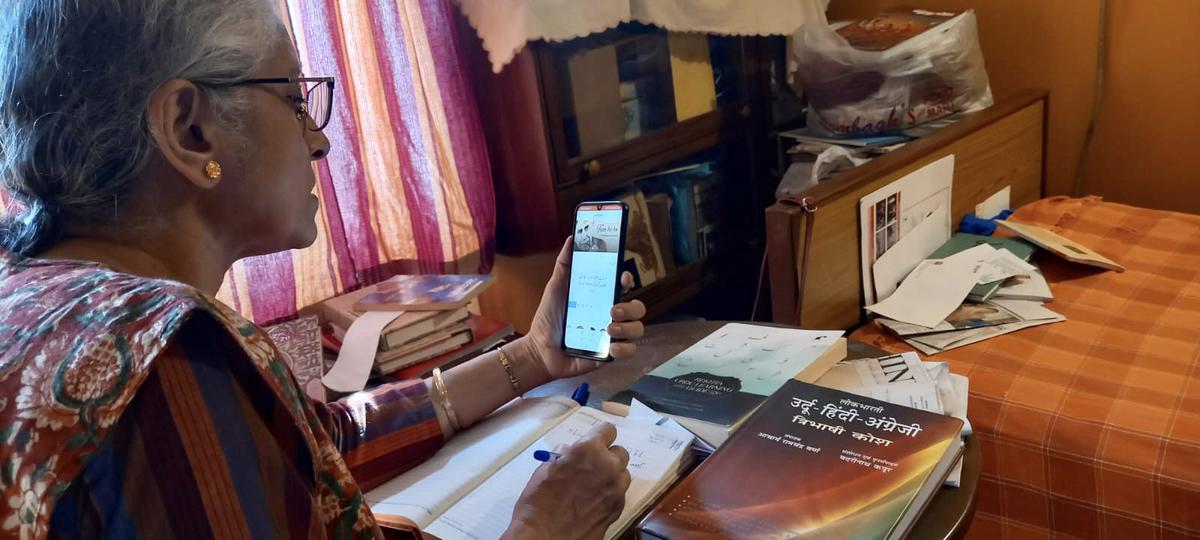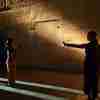
Using Urdu to break barriers, build ties of accord
The Hindu
‘Amid communal polarisation in recent times, our objectives have become more important than ever’
As far as age goes, Sukti Sarkar and Bibhabori Bhattacharyya are 50 years apart. While Ms. Sarkar is a retired banker, Bibhabori is only 14 years old but what binds these two Bengalis is their love for Urdu and the fact that they both learned the language only recently.
They are among the nearly 500 people who benefited or are in the process of benefitting from the online courses being conducted by ‘Know Your Neighbour’, a social experiment being run in West Bengal in association with Kolkata’s Maulana Azad College to promote communal harmony.
The classes began soon after the pandemic-induced lockdown came into force in 2020, the idea being to give a constructive option to people who suddenly found themselves stranded at home, but they continue to attract aspiring learners of Urdu, a language once popular across north India but now associated largely with the Muslim community.
“Urdu is one of the richest Indian literary languages; learning it was like participating in an exploration. Bengali is my mother tongue, English has been my medium of instruction in school, college and university, I learnt Hindi while in service. Compared to all these, Urdu is unique, the nastaliq script runs from right to left. It’s this uniqueness that I found interesting,” said Ms. Sarkar, who retired from the Reserve Bank of India in 2019 and who took the classes along with her son.
“I have completed basic and advanced courses of six months’ duration each. I can now read some of Gulzar’s poems in Urdu. I can understand Urdu lyrics of old Bollywood songs. My ambition is to be able to read at least one story by [Sadat Hasan] Manto and Ismat Chughtai in Urdu,” she said, adding, “I firmly believe in plurality of ideas and cultural practices and identities.”
Bibhabori Bhattacharyya, a student of Class VIII at Gokhale Memorial Girls’ School, said she decided to learn Urdu — and not French or German — because she was fascinated by an Urdu verse she found in a book about Humayun’s tomb.
“The verse was translated into English, but I decided that I should be able to read the original. Also, I live in a country where my neighbours converse in Urdu and where my own language is enriched by Urdu, Persian and Arabic words. So, to understand the meaning of those words and to understand my neighbours better, I decided to learn Urdu,” said Bibhabori.













